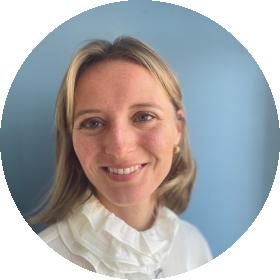

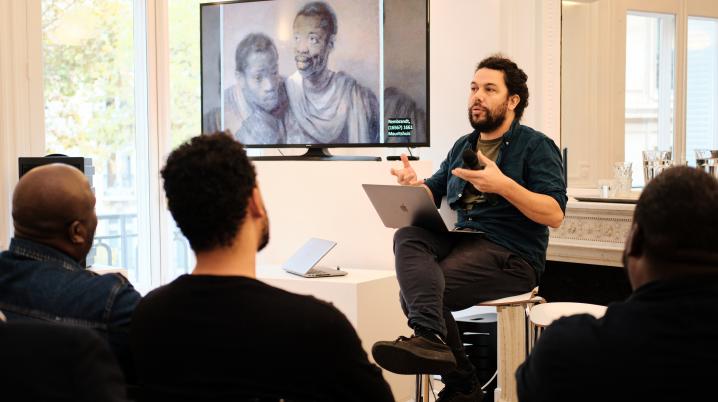
When Dutch heritage organisations and professionals start their international collaborations, many look at Europe first: because of the vicinity of partners, the shared values and the mutual influence in the heritage field. DutchCulture's Europe + Heritage programme supports European collaboration in the field of heritage by giving advice, connections to networks and by providing funding. Since the start of the current international cultural policy period in 2021, the programme's Support Grant Scheme and Travel Grant Scheme have supported a total of 68 projects and journeys by Dutch and European heritage professionals, both in the Netherlands and in Europe. In this article, we proudly present a handful of the many successful European heritage collaborations - divided into five themes - to inspire your possible international plans.
For young professionals in the heritage sector participating in international opportunities is not apparent. They themselves or the organisations they work for often lack the resources to enable this or prioritize their more established colleagues. Furthermore, young heritage professionals often deal with student loans, lack permanent contracts, or (are forced to) work on a freelance basis, which makes it harder for them to contribute financially to the cost of an international journey or project and makes them less embedded in the organisation they work for. To encourage young professionals to establish European contacts and exchange knowledge from a European perspective, the Europe + Heritage programme has a particular focus on young professionals. We actively reach out to them and stimulate their applications for funding, which often support their first step in the international domain. In this, DutchCulture is not alone. The European Union had declared 2022 the European Year of Youth and several European and EU-funded networks and organisations set up projects and programmes focused on the same target group.
During the European Year of Youth, Future is Heritage organised the Future is Heritage (FisH) Summit 2022 in Prague. Future is Heritage is an international network of young people working in the field of heritage, in cooperation and with the support of Europa Nostra - the European Voice of Civil Society Committed to Cultural Heritage - and ESACH - the European Students’ Association for Cultural Heritage. Students, young professionals and volunteers in the field of cultural heritage made up the summit's 48 participants from 25 different countries. DutchCulture supported the summit with a Support Grant and enabled European visitors to travel to the summit by granting them a Travel Grant.
During the four-day programme, in September 2022, workshops, discussions and lectures took place focussing on four main themes: heritage and conflict, heritage and inclusion, contested heritage, and heritage and personal development. The summit was organised semi-parallel to and integrated within the programme of the annual European Cultural Heritage Summit 2022, organised by Europa Nostra in partnership with its European and Czech partners. Between some younger participants and some older participants of the FisH and Europa Nostra summits intergenerational exchanges on these themes were encouraged.
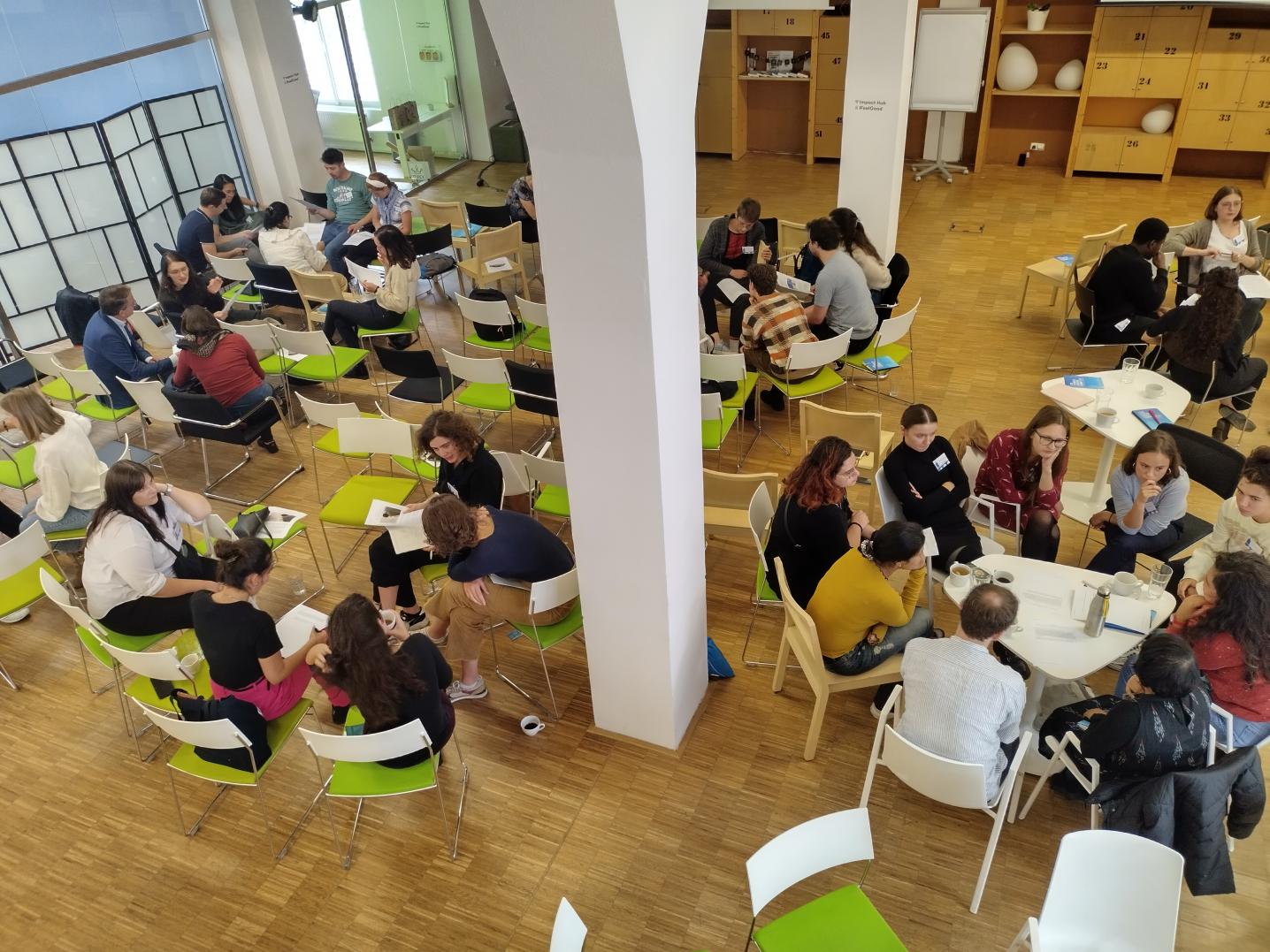
Besides supporting individuals and organisations in organising summits, conferences or symposiums themselves, DutchCulture's Europe + Heritage Travel Grant Scheme also finances journeys of heritage professionals to attend a conference abroad, especially when they are invited as a speaker. Likewise, speakers from abroad can also be invited to the Netherlands. Strengthening the European network and improving knowledge exchange in the heritage field between the Netherlands and the rest of Europe is the most important requirement.
Remembrance Camp Westerbork
Bas Kortholt of Remembrance Centre Camp Westerbork travelled to Brussels in 2022 to present the project The Remembrance of Camp Westerbork during a symposium on the European Heritage Label. Kortholt: “I had the chance to present our project to colleagues of different heritage institutions and exchange views after the presentation. In this sense, I have reached the intended goals for my visit.”
Danish reminiscence project on dementia
Two incoming visits were paid by Henning Linberg and Anne Marie Rechendorff from Den Gamle By museum in Denmark to the Openluchtmuseum in Arnhem (Dutch Open Air Museum) on the topic of their reminiscence project, focussed on people with dementia. The two visitors shared their views on collaborations, funding, dos and don'ts and education opportunities for a similar project in the Netherlands, combining caretaking and heritage. This took place in the form of personal meetings between professionals of the Danish and Dutch museums and during a semi-public event with the project's stakeholders. "The enthusiasm of the visitors from Den Gamle By was contagious and inviting to further discussion. The exchanges and the day, in general, have been considered very valuable," according to a spokesperson of the Nederlands Openluchtmuseum.
Intangible cultural heritage in Europe shows a huge variation between oral traditions and expressions, performing arts, social practices, rituals and festive events, knowledge and practices concerning nature and the universe and traditional craftsmanship in every country. Generally, this heritage is less well organised and structured internationally than tangible heritage such as monuments, sites, museums and archives. To improve the international exchanges between intangible heritage professionals and practitioners, intangible cultural heritage is one of the focus topics for the Europe + Heritage programme.
Circus culture
Circus culture is an example of intangible heritage; it is also one of the additions to the Dutch Inventory of Cultural Heritage. In April 2022, circus professionals from France, the United Kingdom, Serbia, Croatia, the Czech Republic and the Netherlands met in Tilburg, together with designers and architects. Their travel costs were covered by the Europe + Heritage Travel Grant. Festival Circolo raised the initiative from the Netherlands and Circostrada, the international network for the circus sector. Travelling circuses with the well-known circus tents deal with increasingly higher costs, stricter environmental policies and rules that threaten the continuation of their practice. Because circuses often tour internationally and there are no European guidelines for tents, transportation etc., the goal of this meeting was to collect existing local policies as a first step to a European lobby. The group started with an analysis of the environmental footprint of a travelling circus company in comparison to a company that plays in existing theatres. Lastly, a network has been founded to share information more easily.
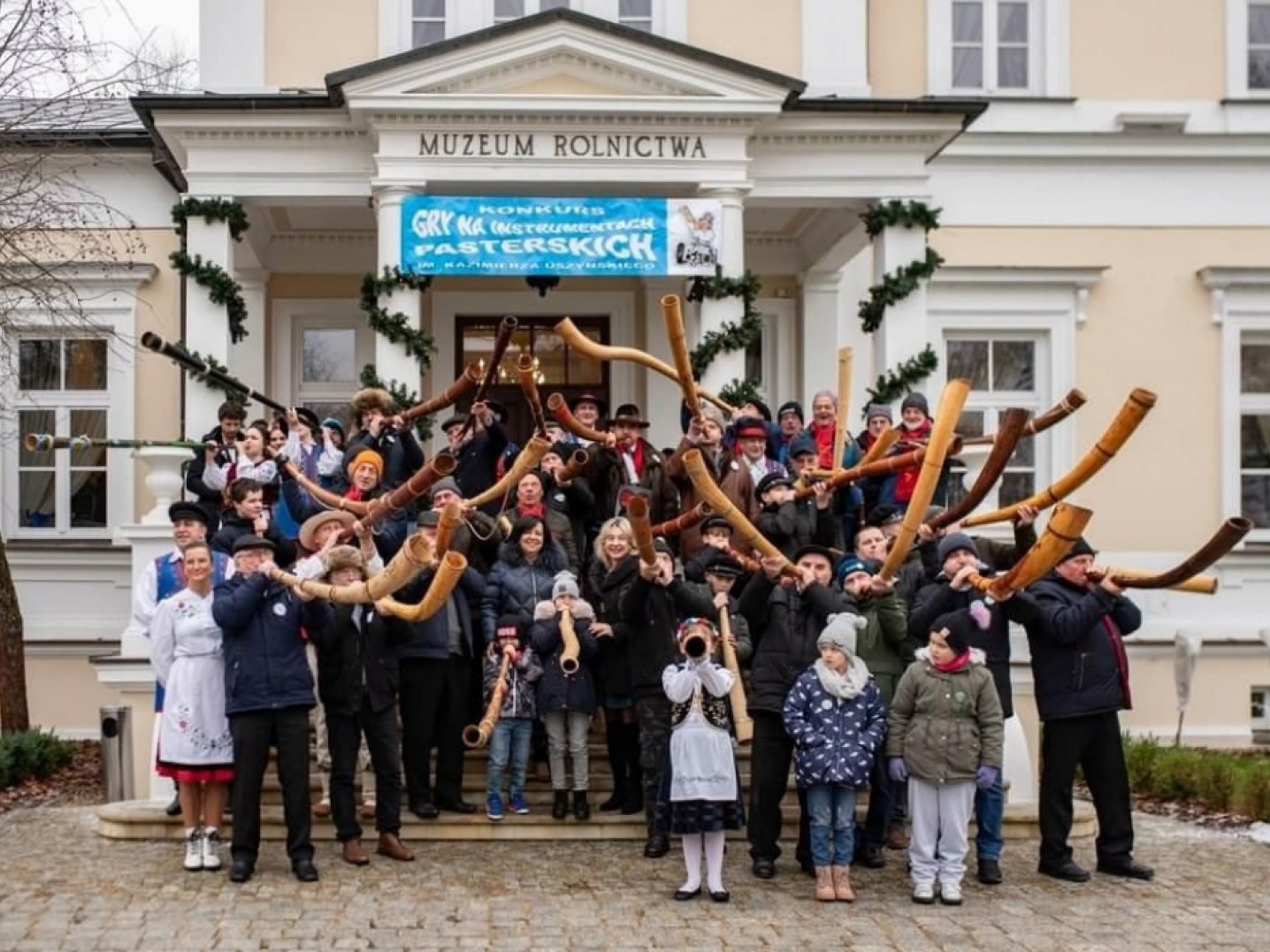
Midwinter horn blowers
The intangible heritage community of midwinter horn blowers from Eibergen was supported by a Europe + Heritage Travel Grant for their participation in the 41st Kazimierz Uszyński Pastoral Instruments Competition in Ciechanowiec, Poland. Eight hornblowers travelled to Poland in December 2022 to share their passion for their intangible heritage and demonstrate the practice of midwinter horn blowing and compare it with other European shepherd's horn-blowing traditions, for example from Lithuania, Slovakia, Switzerland, Finland and Estonia. Traditional clothing and dances often accompanied the performances of the horns, flutes and other instruments of various shapes and sizes. The focal point of the visit was knowledge exchange, networking and sharing best practices.
To preserve the traditional instruments from oblivion, they are not only shown but also demonstrated to each other in a competition with an official jury. "The number of flutes is too high to count. (…) All age groups are represented, sometimes participants are by themselves, sometimes in groups. (…). More than 75% of them perform in folkloristic dress," someone from the Dutch group recalls. Every performance is supposed to last for a maximum of four minutes. At the end of the day, musicians spontaneously start a band and start to play.
Few will have missed the increasing focus on colonial heritage, slavery history and the impact on the present days in the Dutch heritage field. The same goes for other European countries. Although every national context is different, countries and heritage professionals can learn from each other's history, heritage, methodology, policy and activism. Therefore, the Europe + Heritage programme is happy to have supported two outstanding examples of a project and a journey supporting European exchange on the topic of colonial heritage.
Hidden stories
Felix Meritis, an Amsterdam-based cultural organisation that is part of Amerpodia, focused on Dutch-French knowledge experts exchange during the event 'From Amsterdam to Paris: conversations and lessons of shared history' at Atelier Néerlandais in Paris in October 2022. The exchange between 50 artists, curators, museum professionals and historians from both countries was organised on the occasion of the exhibition In Total Darkness of the Bahaman-American conceptual artist Tavares Strachan in Paris. Hidden stories and the urge to share and spread these were central to his exhibition as well as to this event. The first session was the presentation Black in France by Mame-Fatou Niang, a university professor of French and French language studies, who asked the public: "Did you know that the French language doesn't have a word for blackness?"
After this presentation, Dutch archivists and curators shared best practices for collecting stories from the past and sharing them with the public. The French attendees shared the difficulty to enter the national museums professionally in their country, even more so for black people. Although there are exhibitions about hidden stories, they are temporary and so they disappear from the public space after some time. Of course, the place to tell these stories is not limited to museums. New corners of the digital web and the music industry offer alternatives to the settled institutions.
From ethical dilemmas and Beyoncé bringing new audiences to the Louvre to questioning why you would be the right person, maker, or artist to bring a particular story to light: the two-day event was filled with fruitful exchanges and concluded with a visit to Strachan's exhibition.
Understanding history to deal with social issues today
In January 2023, heritage professional Sofia Lovegrove travelled to Lisbon to participate in two international events on the topic of slavery and the role of museums. One of them was the symposium Reckoning with Racism. The social memory of the slave trade, a collaboration between the Portuguese organisations Accesso Cultura, Museum of Lisbon, Batoto Yetu Portugal, Culturgest and MUHNAC and the American Slave Wrecks Project and the Centre for the Study of Global Slavery.
She moderated the conversation Racism in the Public Square. The Role of Museums in Difficult but Necessary Conversations together with Lonnie Bunch, in which the international Slave Wrecks Project was discussed, as well as restitution policies and international comparisons between the presence of the history of slavery in the public debate.
One of the takeaways of the symposium was that all speakers don't work only on slavery history and the colonial past; more so, they develop and stimulate a better awareness of our current-day societies, how we are connected within and outside of our national borders and how we can use a better understanding of our history to deal with social issues nowadays. Sofia Lovegrove reflects: "Personally, I've learned a lot: about the colonial and slavery past and how international collaboration can contribute to a better understanding of this; and about the role of museums in dealing with this painful history and its effects. (…) The symposium in Lisbon served as inspiration for an international event that I would like to organise in the context of the slavery memorial year [in the Netherlands], together with national and international partners." Lovegrove's journey was supported by the Europe and Heritage programme Travel Grant.
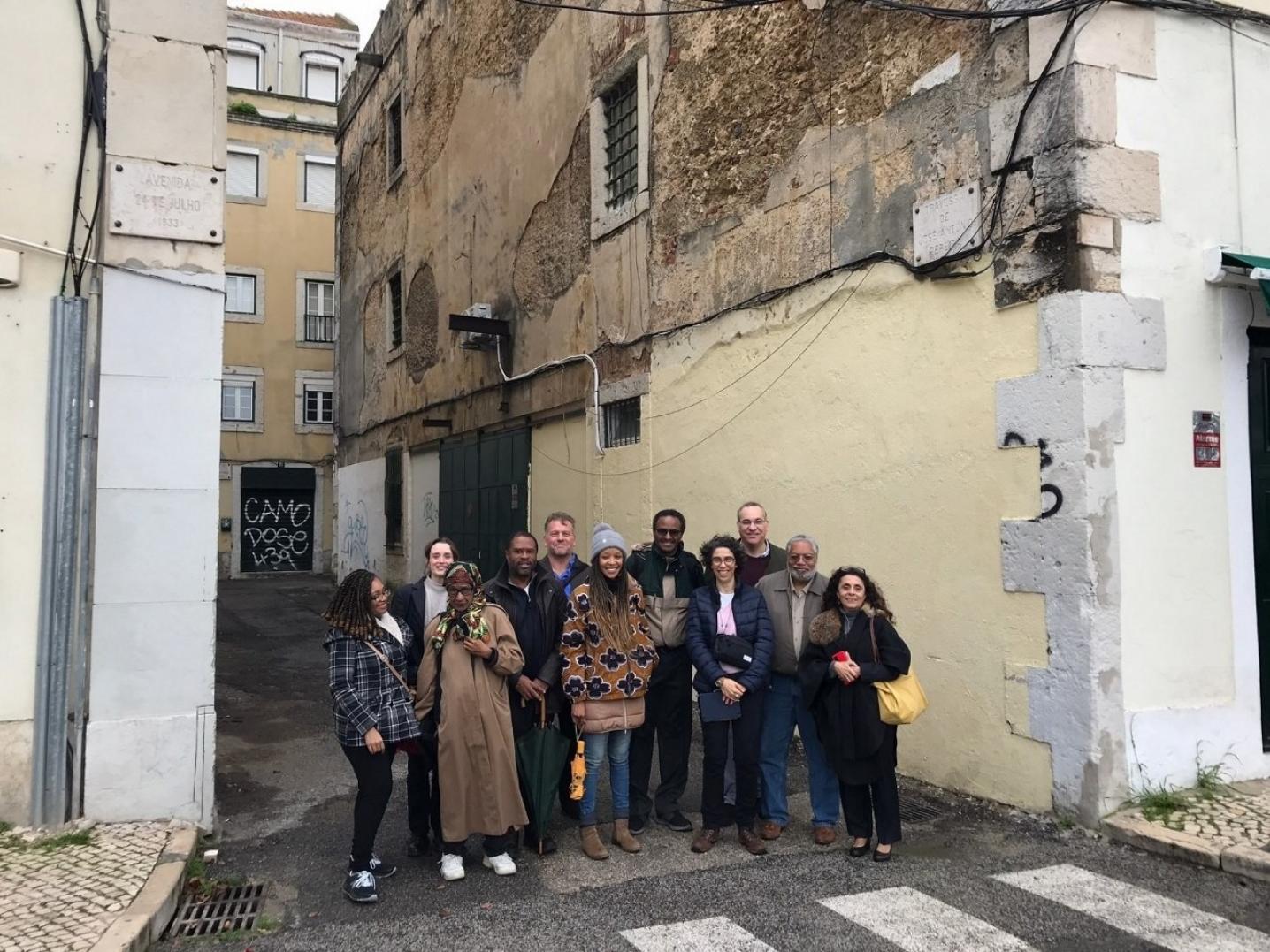
The final topic that is very present in the heritage sector is digitalisation. Of course, the digital realm has no national boundaries and offers opportunities to reach a wider audience and set up collaborations – sometimes in an easier way. The project Samen Verder Draaien (Together turning on), initiated by De Hollandsche Molen, was supported by a Support Grant Scheme. "With DutchCulture's grant, we have been able to set important steps in the technical development of the project. A proper basis is needed to build the content of the project," states Nicole Bakker, director of De Hollandsche Molen. Eventually, Samen Verder Draaien will be a European knowledge platform that collects, preserves and makes available knowledge of mills, for lots of traditional knowledge of mills is currently memorized by a handful of millers and craftsmen and not well documented. Samen Verder Draaien intends to collect the present information from European specialists and document it for the future. At this stage, Belgium, France, the United Kingdom, Germany, Denmark, Sweden, Norway, Finland, the Czech Republic and Austria are involved in the project. The craft of the miller operating wind- and watermills is inscribed to the Unesco Representative List of the Intangible Cultural Heritage of Humanity in 2017.
Of course, the above-highlighted projects are just a few examples of the many successful, interesting and fruitful journeys and European collaborations that have taken place in the last two and a half years: from research to medieval textile embroidery to digitising a French collection of clay tobacco pipes, from young European cultural heritage ambassadors visiting the Netherlands to travelling to a conference to meet the members of a committee for the first time in real life, after months of video calling.
Are you interested? The Europe + Heritage Programme calls for heritage students, professionals and organisations based in the Kingdom of the Netherlands (including the Caribean part!) to apply for its Support Grant Scheme or Travel Grant Scheme for any European collaborations or journeys. Applying is easy, and quick and we don't work with deadlines: applications are processed on a continuous basis and in a short period of time.
For any questions, please contact our advisor Europe + Heritage Jacomine Hendrikse.